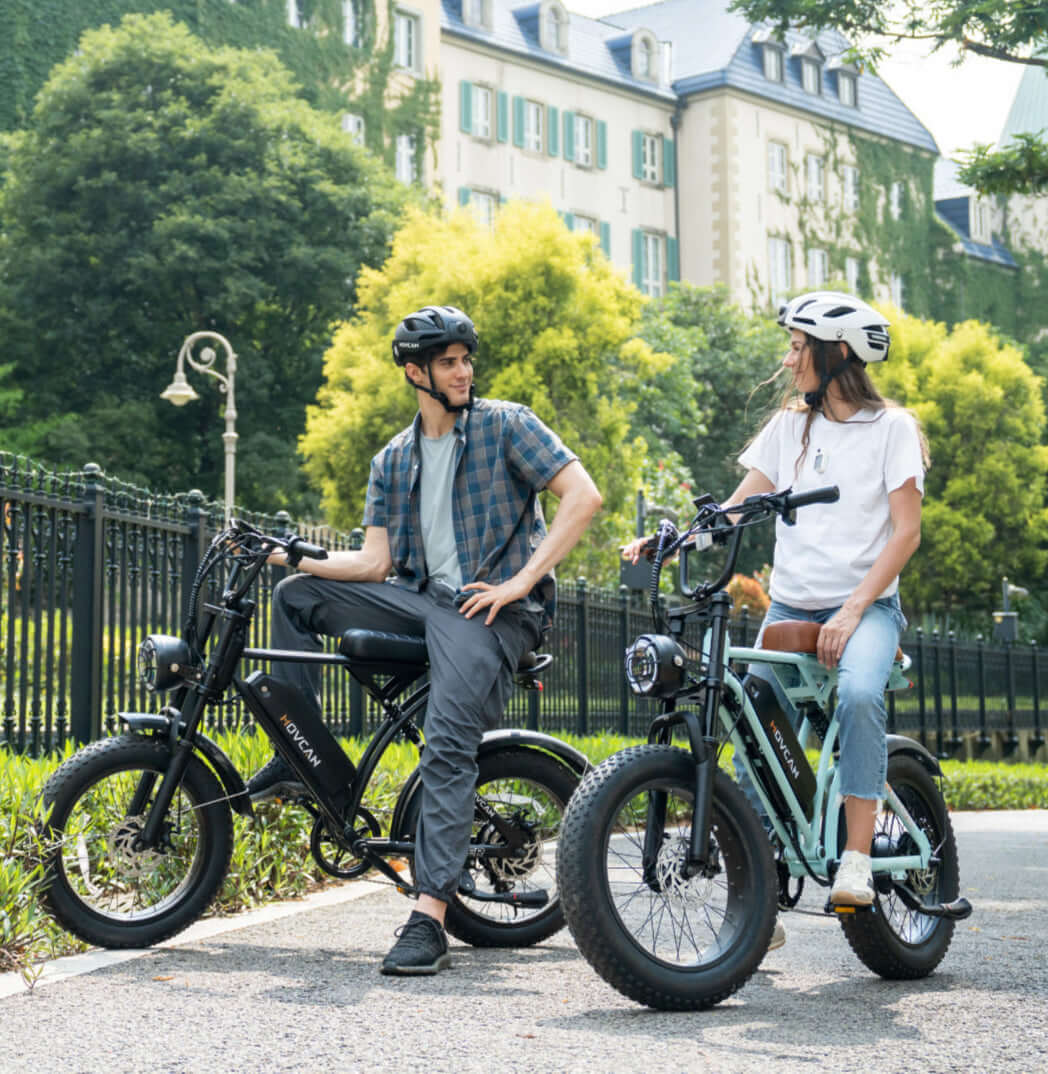The Environmental Value of AI-Optimized E-Bikes
The environmental impact of transportation has never been more critical to address. According to a study conducted by the European Cyclists Federation, e-bikes create only 2.5 to 5 grams of carbon dioxide per mile compared to 150 grams per mile for an electric car, making them a superior choice even among electric vehicles.
When AI optimization enters the equation, these environmental benefits become even more pronounced. An individual e-bike could provide an average reduction of 225 kg CO2 per year, and with intelligent route planning and energy management systems, this impact can be maximized significantly.
Smart Route Planning for Maximum Efficiency
Modern AI-enabled e-bikes don't just provide assistance—they think ahead. Imagine your bike knowing when you're about to hit a steep hill and boosting power just enough to make it feel like a breeze. This predictive assistance optimization works in several ways:
Terrain Analysis: AI algorithms process topographical data in real-time, adjusting power output before you even encounter challenging terrain. This proactive approach reduces energy waste and extends battery life significantly.
Traffic Integration: Advanced systems now incorporate real-time traffic data, suggesting alternative routes that avoid congestion while optimizing energy consumption patterns.
Weather Adaptation: AI considers wind resistance, temperature effects on battery performance, and precipitation to adjust assistance levels automatically.
Breakthrough Technologies Reshaping E-Bike Efficiency
Adaptive Power Management Systems
Urtopia's AI-driven e-bikes use machine learning to personalize assistance based on your riding habits, making every ride smoother and more energy-efficient. These systems learn from your pedaling patterns, fitness level, and preferred riding style to deliver precisely the right amount of assistance at the optimal moments.
The latest developments include:
- Predictive Battery Management: AI algorithms forecast power needs for entire journeys, preventing mid-ride battery depletion
- Dynamic Power Distribution: Real-time adjustments based on rider input, terrain changes, and efficiency optimization
- Learning-Based Calibration: Systems that improve performance over time by analyzing riding patterns
Revolutionary Battery Technologies
With improved energy density and regenerative braking systems, many 2025 e-bikes can now surpass 100 miles on a single charge. AI plays a crucial role in maximizing these advances through:
Intelligent Charging Cycles: AI-managed charging systems that optimize battery lifespan while reducing charging times to under three hours.
Regenerative Braking Optimization: Regenerative braking systems on e-bikes effectively convert the kinetic energy generated during braking into electrical energy, which recharges the battery and boosts overall efficiency.
Thermal Management: Smart temperature regulation that maintains optimal battery performance across varying environmental conditions.
Real-World Impact: The Numbers Don't Lie
The environmental benefits of AI-optimized e-bikes extend far beyond individual riders. If every American who drives five miles or less to work were to switch to an electric bike just one day a week, it would have the same effect as taking one million cars off the road immediately.
Worldwide e-bike sales are expected to soar to 60 million units annually by 2025 — a trend that will rocket the industry from niche market to mainstream mode of mobility. This massive adoption, combined with AI optimization, represents a significant opportunity for carbon reduction at scale.
Urban Mobility Transformation
E-bike technology significantly improves urban mobility by reducing congestion and providing eco-friendly transportation solutions. AI amplifies these benefits through:
- Smart City Integration: Connected infrastructure that communicates with e-bikes to optimize traffic flow
- Predictive Maintenance: AI systems that prevent breakdowns and extend vehicle lifespans
- Fleet Optimization: For sharing programs, AI manages distribution and maintenance scheduling
Voice-Controlled Intelligence: The ChatGPT Revolution
Urtopia revolutionizes cycling with the world's first smart ebike featuring integrated ChatGPT for demo voice interaction. This breakthrough allows riders to:
- Control gears, lights, and navigation through voice commands
- Receive real-time coaching and performance feedback
- Access weather updates and route suggestions hands-free
- Monitor battery status and range predictions
For riders seeking cutting-edge technology, explore the latest MoVcan smart e-bike collection featuring advanced AI integration.
Sustainable Manufacturing and Circular Economy
The environmental benefits extend beyond usage to production. Manufacturers are increasingly using recycled materials for e-bike frames, lowering the demand for new raw materials and minimizing the carbon footprint.
In the processes used by the German GRS industry solution, almost 71% of the raw materials from a used eBike battery can be recovered and used for new products, demonstrating how the industry is building sustainability into every aspect of the product lifecycle.
Looking Ahead: The Future of AI-Powered E-Mobility
As we move deeper into 2025, several trends are emerging that will further enhance the environmental benefits of AI-optimized e-bikes:
Enhanced Connectivity: Smart e-bikes in 2025 are more connected than ever, forming part of a larger ecosystem that includes GPS navigation, anti-theft tracking, and smartphone integration.
Improved Motor Efficiency: The MGM system also shows great promise for use in gravel, road, and other lightweight, high-performance e-bikes where weight, efficiency, and ride feel are critical.
Market Growth: The global e-bike market is set to rise from $48.7 billion in 2024 to $71.5 billion by 2030, driven largely by AI innovations and environmental consciousness.
For comprehensive guides on choosing the right AI-enabled e-bike, visit our e-bike buying guide.
Conclusion: The Smart Choice for Sustainable Transportation
AI optimization in electric bicycles represents more than just technological advancement—it's a paradigm shift toward truly sustainable urban mobility. By combining intelligent energy management, predictive route planning, and personalized assistance systems, these innovations are making e-bikes more efficient, accessible, and environmentally beneficial than ever before.
The convergence of artificial intelligence and electric bicycle technology offers a compelling solution to urban transportation challenges while delivering measurable environmental benefits. As adoption continues to accelerate and technology advances, AI-powered e-bikes are positioned to play a crucial role in achieving global carbon reduction goals.



Share:
Hydrogen Fuel Cell Electric Bicycles: A New Frontier in Zero Emission Technology
How Bio-Based Composites Are Transforming Electric Bicycle Manufacturing